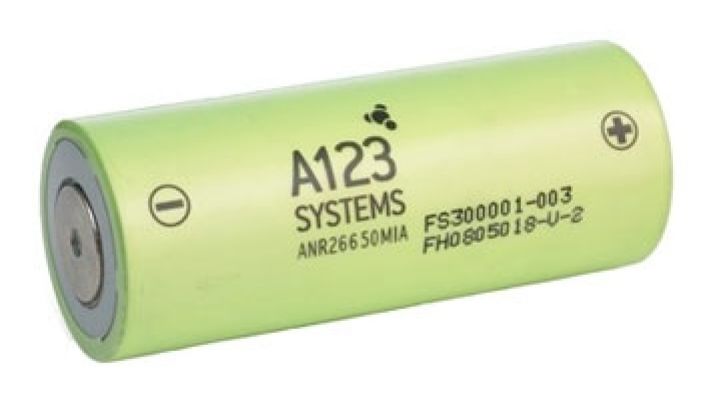It still hasn't made a profit, but customers want their batteries, says A123 Systems.
The Watertown, Mass-based battery manufacturer said that its net loss for 2009 came to $85.8 million, higher than the loss of $80.5 million in 2008. The good news, however, is that sales are growing fast. Revenue for 2009 came to $91 million, a 33-percent jump from the year before. Total battery capacity shipped for the year came to 66.5 million watt-hours, well above the 44.9 million watt-hours shipped in 2008.
The company further said today that it would expand factory capacity by 200 megawatt-hours to bring total capacity to 560 megawatt-hours. That's still way above what the company shipped, yes, but many customers of A123 have yet to move into full production themselves. That may happen in 2011 and 2012, according to the company. One of the big customers is Fisker Automotive, which will come out with its first car later this year and will start to move into volume production over the subsequent years.
A123 held a celebrated public offering last year. The stock zoomed from its starting price and, although it has come down a bit, it's still above water. The stock today trades at around $16. In the wake of the IPO, others filed the preliminary papers to hold their own IPOs, but to date none have gone public.
Elsewhere:
--EnerNoc put a formal platform wrapper around a lot of the new products it has introduced in the last two years. The demand response company, which has over 3 gigawatts of power under its control, bought eQuilibrium Solutions, a carbon accounting company, in 2008 and followed with Cogent Energy in December to accelerate the push into building management. Morgan Stanley hired the company to analyze the efficiency of its New York offices. The platform -- which renames applications DemandSMART or CarbonSMART -- could potentially make it easier for customers to adopt the suite. No word if PetSMART plans to sue.
Side note: both EnerNoc and A123 were founded in 2001. EnerNoc went public in 2007 and had its first profitable quarter in the fall of 2009.
--Solazyme and Unilever formally announced an agreement to develop algae oil for soaps and personal care products. The soap market isn't as big as the diesel market, but Solazyme can get these types of oils to market relatively quickly. You don't need a 100-million-gallon-a-year refinery for soaps. Solazyme already sells algae oil to food makers.
--Metabolix says it has started to ship quantities of its Mirel bioplastic. Commercial deliveries could start next month.
--Echelon said it has shipped 2 million of its NES smart meters. (This total does not include the 30 million meters that Echelon has shipped to Italy for the smart meter project owned by Enel.) The NES meters mostly allow utilities to conduct remote activation and termination of accounts and track energy consumption. Over time, the meters will connect to appliances in the home for demand response functions, said Michael Anderson, the senior vice president of NES on a phone call from Europe. NES meters largely connect to substations through power line networking, which Echelon promotes heavily. Utilities in the U.S. have yet to fully embrace power line, but that is changing. Another side note: one of Echelon's early investors was Mike Markkula, who helped Apple get off the ground.



